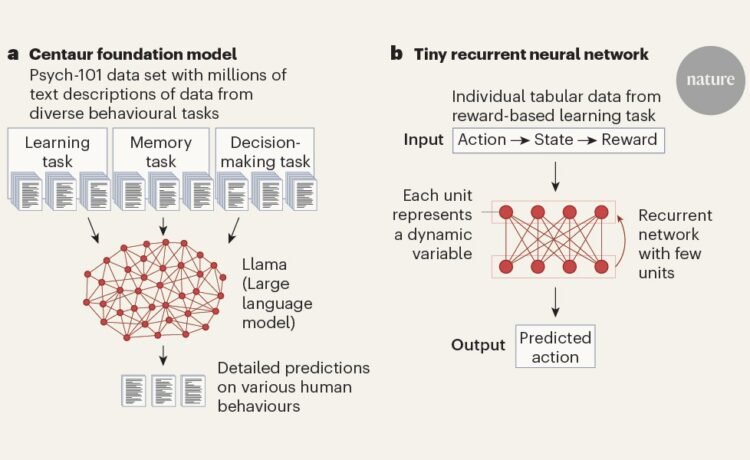Cognitive scientists aim to understand minds as computational systems. Although numerous theories of human and animal cognition exist, they are often confined to particular aspects of cognition (domains) and ‘levels’ of analysis. For example, there are theories of natural language at the abstract, algebraic level; theories of learning at the level of algorithms; and theories of brain plasticity at the level of neurobiology. This separation means that they struggle to provide a holistic picture of how the mind works. Integrating cognitive theories ‘horizontally’ across domains1 and ‘vertically’ across levels2 remains a major challenge. This challenge echoes wider scientific debates about whether descriptions of a system’s behaviour at one level can be traced back to descriptions of the system’s components at lower levels, and about the unification of diverse theories. Writing in Nature, Binz et al.3 and Ji-An et al.4 use machine-learning models based on artificial neural networks to develop such integrative theories of mind.






